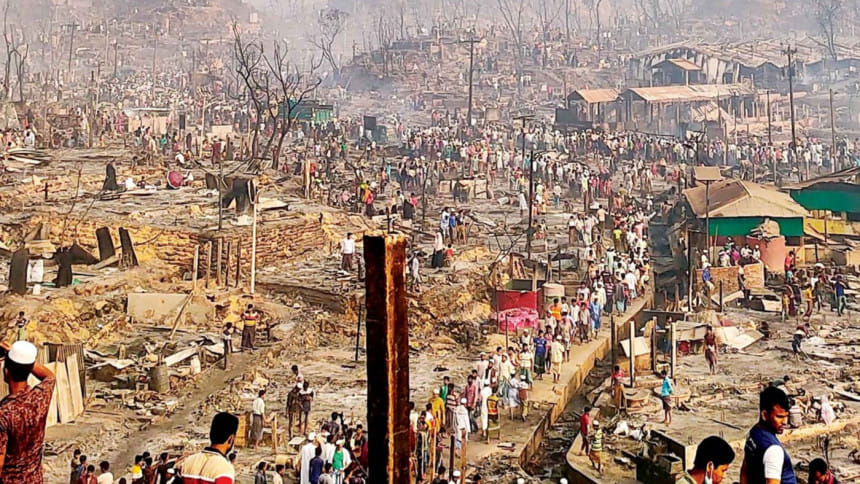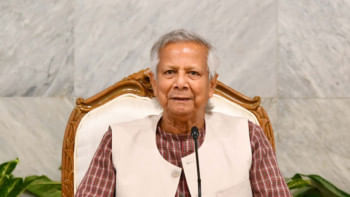Over 45,000 Rohingya refugees affected

The stories of loss and devastation that are coming out of Balukhali after two separate fires tore through the refugee camp in Cox's Bazar on Monday are heart-wrenching. A report in this daily yesterday described the area as looking like a "war zone", with distraught refugees sifting through the debris in an attempt to salvage their belongings, as smoke continued to billow from the estimated 10,000 houses that were destroyed in the blaze. According to the latest estimate, around 45,000 refugees have been affected by the fires and at least 11 have been killed, including three minors. What is even more concerning is that up to 400 refugees are still missing in the wake of the fires.
One can only imagine how traumatic this must be for the refugees who have already suffered the loss of their homeland and all that they hold dear after becoming victims of genocide in Myanmar. Some of the refugees have spoken to The Daily Star of the pain of losing not just their savings and whatever minimal property they owned, but also their cherished memorabilia of a homeland they fear they may never see again. They have also spoken about the lack of water in the camps, and how many saw gas cylinders for cooking—which had been distributed on that day—explode and contribute to the fire spreading further.
This is not the first time that fires have broken out in the refugee camps. In January this year, around 3,500 Rohingya refugees were left homeless after a similar incident. This begs the question: despite having prior experience, why were the camp authorities not prepared for such an eventuality? Why, despite the presence of government and humanitarian organisations, is there no system in place that helps refugees to safely store flammable objects like gas cylinders, provides fire safety training, and equips local volunteers with the tools necessary to control fires while waiting for the fire service to arrive?
The Rohingya refugee camps in Bangladesh are one of the most densely populated refugee camps in the world, so it is understandable that such fire hazards are difficult to deal with. Be that as it may, there is no excuse for not being able to protect the lives and belongings of such a marginalised population that has already been on the receiving end of such terrible persecution. The authorities must immediately investigate the latest incidents of fire and unearth the factors that contributed to it, so that the government and humanitarian organisations can work together to ensure that such devastating events do not occur again, and if they do, there are systems in place to control them before they get out of hand (which must include the speedy arrival of the fire service). The refugees who have been affected must also be adequately compensated for their losses.

 For all latest news, follow The Daily Star's Google News channel.
For all latest news, follow The Daily Star's Google News channel. 



Comments